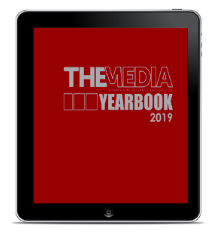There is so much data out there. Analytics and metrics have become part of virtually every radio discussion.
If you were one of those people back in school who couldn’t quite understand the relevance of maths in your life, the future should now be clear to you. Numbers have always mattered, whether you’re talking quarter hours, unsold inventory, or digital downloads.
Of course, those basic numbers are understood by most people working in radio. You learn how to read a ratings book, decipher a sales spreadsheet, and track your station’s new media progress.
It’s the rest of the data picture that’s flummoxing just about everyone in the media and entertainment business. There is so much data that we’re losing sight of the “metrics that matter”. No matter who you talk to, everyone has a different idea of what the numbers mean.
Yes, we know where our station stands in a 25-54 year-old average rating ranker or in a Miller Kaplan report. But when we start moving into murky areas – like attribution – the conversation breaks down – not just inside the station, but also among advertisers – at both the agency and local levels. They all want a digital component to their marketing plans; the problem is, they just don’t know precisely what that means or how to measure its effectiveness.
So, what can the average radio station in Chicago, Chattanooga, or Corpus Christi do to close the data gap? Because many employees at your stations don’t understand the data. Or they fear it.
Asking the right questions
The problem is, we often don’t ask the right questions. A new story in the Harvard Business Review by Charles Wheelan suggests there’s truth in the data if we just frame it properly.
It’s like the book Moneyball by Michael Lewis. Skip the Brad Pitt Hollywood-ized production, and read it. It’s all about using the data – demystifying it – to ask the right questions about the true stats that help explain what makes a great – and a mediocre – baseball player.
Too many radio programmers shroud their staffers from contact with the numbers. And as a result, many personalities and even sales people don’t really understand the metrics that truly move the needle – in their livelihoods.
When the reps understand the ratings and the numbers are clarified, it better informs them about why the PD does what she does. It demystifies the audience, while creating a better sense of empathy for what the programming department is trying to do.
Similarly, PDs who keep music research or perceptual studies in a locked fortress lose the chance to help the air staff better understand why the station is – or isn’t – playing that song, breaking at that time, or ending the morning show at 9am.
Read The Media Yearbook, here. Our annual look at trends, issues and research impacting on the media space. Click on the cover image to access the digital magazine.
A number of years ago, I consulted a Classic Rock station that was floundering. The air staff didn’t respect the station management, and felt the playlist was unnecessarily tight.
To diffuse the situation and bring the jocks into the conversation, I convinced the PD to let each member of the air staff select five songs that would be included on the hook list in the upcoming test.
So yes, there was a cost – in fact, 20 songs that were never tested before replaced the same number of titles that were tested year in and year out.
The end result of this experiment was that we shared the results of the entire test with the staff. They got to see how their picks actually performed, learning (in most cases) why those titles would never see the light of day.
Respect for the process
My recollection, however, is that we discovered a few new songs we could play, because a couple of personalities believed there were songs that had a market history us out-of-towners couldn’t possibly have known about. And they were right.
The air staff felt included. Their opinions were considered. They finally had an understanding of the benchmarks used to evaluate the music. And they came away with a higher level of respect for the process.
The other data application is with the audience. More and more stations conduct web-based research (like our Techsurveys), and a typical question asked by respondents is whether they’ll see the results.
While it was once unthinkable to share data with radio listeners, it is actually a smart strategy. If you think about research as marketing, it’s a brilliant way to deal the audience into the process, while getting their buy-in to programming changes.
By providing a brief series of slides for listeners (those who took the survey, as well as posting these results on the station website), the station is in a better position to introduce changes suggested by audience members themselves.
“You told us you wanted more twofers, so starting this weekend, it’s Classic Rock Blocks…”
Data doesn’t have to be off-putting or intimidating. Used wisely, it can provide a sense of inclusion and insight for staffers, clients, and listeners.
Data centre stage
You may think you don’t have a good head for numbers, but the fact is that data is going to become an increasingly important part of succeeding in the media business – and other professions. For example, at this year’s NAB Show in Las Vegas, there was a different vibe in the Encore, Wynn, and sessions at the Convention Centre.
Data took centre stage, becoming the most-discussed topic at the entire convention. The word cloud (left) is just an approximation of the conversations that took place at broadcasting’s biggest annual gathering.
In panels, suites, bars, and meeting rooms, data emerged as an important and timely four-letter word.
And to that point, data analysts could become as essential to media companies as content creators. Using data to better understand the audience and advertisers is as fundamental as it gets. Now, thanks to artificial intelligence (AI) data is becoming better organised, useful, and predictive.
This is where the auto industry is headed. And just about every major manufacturer is now tasking its management teams with developing viable data strategies.
For too many years, car makers simply sold their vehicles and watched them roll out of the dealership. Except for oil changes and maintenance, they have failed to cash in on their cars and trucks once they’re sold.
Radio broadcasters, of course, have been the main beneficiaries of the car radios installed in millions of dashboards. Without paying a fee, car makers have dutifully included a radio in every car they manufacture, despite the fact they cannot monetise it themselves.
And that’s why their view of data, scale, and profits after the sale is rapidly morphing.
They have metrics coming out their tail pipes – from the radio stations people punch in and out of to the windshield wiper speeds drivers use. They know where we are, when we commute to and from work, where and when we stop for coffee, and our favourite bar on Friday night.
Their ability to use the metrics from their cars – where people are located, where they work and play, when they change radio stations, and virtually everything else consumers do in their vehicles – is trackable and measurable. But they’re not yet sure how to use that data.
That’s why they’re working hard and spending millions to crack their own data codes. Once models are developed, car makers will package and monetise all that data. And that’s when things will get interesting.
Learning about data, and how it impacts peoples’ roles inside a radio station or a media company is rapidly becoming an important pursuit.
It start with demystifying the data, and working as teams to best deploy and use it.
It’s a numbers game.
Fred Jacobs is the founder of Jacobs Media Strategies in the US, a specialist broadcast and digital agency offering strategy services to a number of radio, TV and podcasting clients. Read his blog here.















